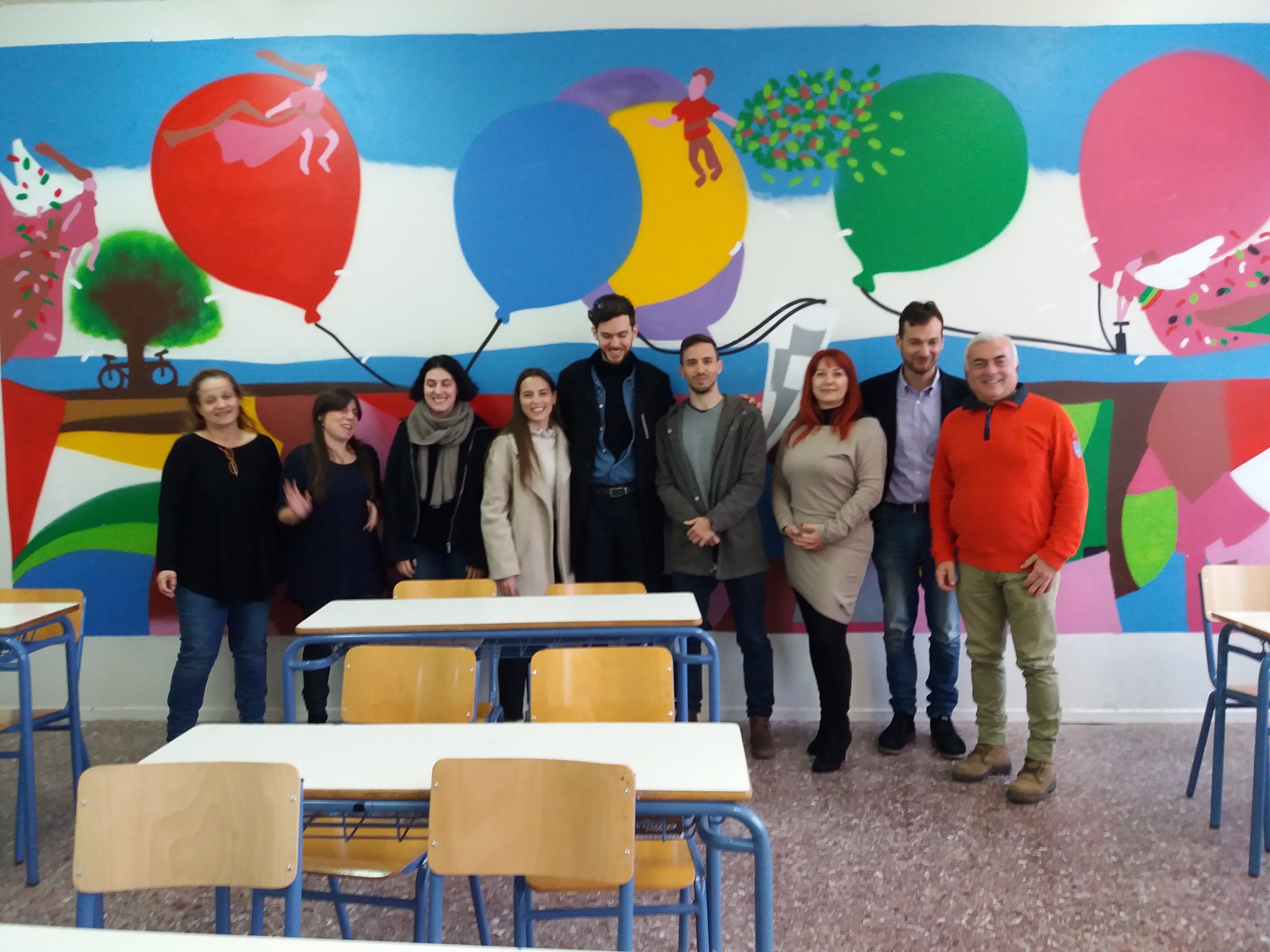
Activities and results of the EUKI project YESclima and COVID-19
by Nikos Chrysogelos
project manager of the YESclima project, implemented by Wind of Renewal
A total of 22 young people, selected on a gender-balanced basis are carrying out energy audits in schools in small towns in the province of Cadiz and in towns near Athens, since autumn 2018. They are elaborating proposals on how these schools can be made more climate-friendly by activities and refurbishment, with no cost (behaviour change) but also low and middle cost energy investments and use of natural systems for heating and cooling. The students gain experience on energy audits in buildings and are thus prepared for the labour market in regions with high youth unemployment. At the same time, they help municipalities to reduce energy costs in schools, and reduce the use of fossil fuel based heating and cooling systems. This saves costs and protects the climate. The 22 students participate in the EUKI “YESclima project”, a partnership of the University of Cádiz / Universidad de Cádiz (UCA), Anemos Ananeosis / Wind of Renewal (GR), Energía y Sostenibilidad Provincia de Cádiz / Energy Agency of Cadiz (APEC), Sekretariat für Zukunftsstudien Berlin an der Freien Universität Berlin / Secretariat for future studies Berlin at the Free University Berlin (SFZ).
The Cadiz teams have already finished energy-audits for 8 schools by the moment and they are working on the last 3 ones, elaborating detailed reports which are discussed with the schools, town halls and politicians on provincial level. Among more or less “conventional” proposals, the teams have developed a completely innovative proposal to install evaporative cooling via the roof, avoiding an energy-wasting and unhealthy air-conditioning. The system is in particular interesting for a more climate-friendly cooling of aged buildings in South European regions in general. It should be combined with solar panels and, if statics allows it, a greening of the roof.
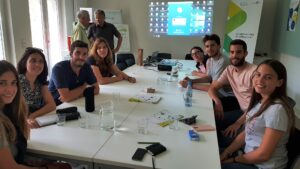 The Greek teams got in contact with different municipalities and schools in the region of Attica. They are collaborating with the local communities of Ag. Dimitrios, Vrilissia and Kaisariani as well as with the school community for making energy audits for 11 schools in total, too. The two previous Greek teams have already realized energy audits in 8 schools together with pupils and discussed the results with teachers and pupils. All the teams organise training seminars in schools and participate in meetings with mayors, technical department of the municipalities and local actors to discuss the implementation of the project in schools. The teams have also presented the studies, recommendations, proposals and results during two 2 workshops (in Ag. Dimitrios and Vrilissia, with the participation of the mayors or/and vice-mayors, teachers, parents and students) and in one conference in Athens (September 2019, during the partners meeting).
The Greek teams got in contact with different municipalities and schools in the region of Attica. They are collaborating with the local communities of Ag. Dimitrios, Vrilissia and Kaisariani as well as with the school community for making energy audits for 11 schools in total, too. The two previous Greek teams have already realized energy audits in 8 schools together with pupils and discussed the results with teachers and pupils. All the teams organise training seminars in schools and participate in meetings with mayors, technical department of the municipalities and local actors to discuss the implementation of the project in schools. The teams have also presented the studies, recommendations, proposals and results during two 2 workshops (in Ag. Dimitrios and Vrilissia, with the participation of the mayors or/and vice-mayors, teachers, parents and students) and in one conference in Athens (September 2019, during the partners meeting).
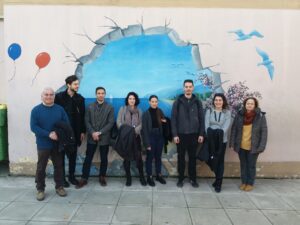 Each of the first two teams were visiting the schools regularly. They realized that the educators and the students were very enthusiastic with the educational part of the project and the methodologies of doing the audits all together. They even implemented non formal education tools to come closer with the students and to work together, based on the outcomes of the EUKI Climate Schools Be.Ath project (Wind of Renewal was partner in this project and responsible for the development and the implementation of methodologies and materials on climate protection in schools with the participation of the whole school community). Using similar tools, the young experts raised awareness for the climate crisis and highlighted the importance of the program YESclima, during their visits to schools. They prepared questionnaires for the teachers and students to fill up in order to learn about their needs and their opinions, too.
Each of the first two teams were visiting the schools regularly. They realized that the educators and the students were very enthusiastic with the educational part of the project and the methodologies of doing the audits all together. They even implemented non formal education tools to come closer with the students and to work together, based on the outcomes of the EUKI Climate Schools Be.Ath project (Wind of Renewal was partner in this project and responsible for the development and the implementation of methodologies and materials on climate protection in schools with the participation of the whole school community). Using similar tools, the young experts raised awareness for the climate crisis and highlighted the importance of the program YESclima, during their visits to schools. They prepared questionnaires for the teachers and students to fill up in order to learn about their needs and their opinions, too.
What is very promising, is that they organised energy inspections together with the students to find out energy problems related to the construction of the school building, the infrastructure, the energy consumption from the appliances and the energy behaviour of the students and teachers. Not a surprise, the students noticed exactly the same issues like the young experts: the lighting, the frame of the windows, the ventilation, the orientation, shadowing but also what must be changed for improving the energy performance of their school.
The reports focus more on energy reduction, behaviour change and low-cost investments that could improve the energy performance of the schools as well as on higher-cost investments for solarizing the heating of the schools and on use of plants for shadowing during the summer period.
The 3d Greek team started in February 2020 the training. But unfortunately, both teams of students from Spain and Greece, already in Berlin for a study visit in March, had to shorten by one week their very interesting trip and to return to Spain and Greece because of the COVID-19. The partners had also to cancel their participation in the EUKI networking conference and the workshop on “energy efficiency and schools” in March 2020, in Berlin. The students from the project in Greece are more affected because they started later and when they returned to Greece all the schools closed and were not able to visit schools for their audits. We had to adjust their project goals and the schedule.
It will be difficult for them to visit the schools again in June, but maybe they can do it in September. But in any case, they will have all the information they need to continue working on the project. We have also discussed to add the energy audit of the WElCOMMON HOSTEL, an innovative hostel with social and green impact run by Wind of Renewal, in order to evaluate the performance of energy efficiency measures (like changing to led lighting) and solar systems installed recently for hot water production. There are measures of the temperatures on the solar panels and of the water in circulation and in boilers every one hour starting since some months ago as well financial data (payments of electricity and oil) for the last 3,5 years. All the data will be evaluated for a better understanding how we can implement solar systems on the roof of big buildings, like schools, hotels, companies and block of flats and how is their energy and financial performance in Athens.
Digitalisation of the project
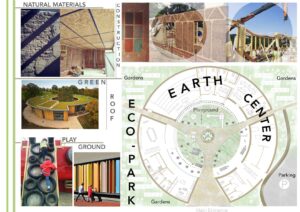 Due to coronavirus lockdown measures, the project work is now taking place online only. During the #StayingAtHome, the partners organized a number of e-learning training courses (using zoom and skype), with the support of F.I.A.P, on the topic of energy efficiency, entrepreneurship, creating teams and working together beyond the borders on climate and energy transition projects, like a dream – “ECO-EARTH” project as well as for European and local ones. It will certainly be difficult for the students in the future. Therefore, it is important for them to learn about ways in which they can create jobs by themselves or establish partnerships and enterprises, especially collaborative schemes of entrepreneurship.
Due to coronavirus lockdown measures, the project work is now taking place online only. During the #StayingAtHome, the partners organized a number of e-learning training courses (using zoom and skype), with the support of F.I.A.P, on the topic of energy efficiency, entrepreneurship, creating teams and working together beyond the borders on climate and energy transition projects, like a dream – “ECO-EARTH” project as well as for European and local ones. It will certainly be difficult for the students in the future. Therefore, it is important for them to learn about ways in which they can create jobs by themselves or establish partnerships and enterprises, especially collaborative schemes of entrepreneurship.
Wind of Renewal is planning for the next weeks a number of digital open events with the participation of experts on energy efficiency and energy transition and students in the post lockdown and COVID – 19 era. More persons can now participate in digital events or see the discussion later on. The project work continues in remote learning with the same enthusiasm as before and the students learn all the more in the online training. We don’t know if we are able to present our excellent results to the local and academic community, in Berlin, in Brussels or in Cadiz as we have planned before coronavirus but we will disseminate the results as much as possible.
The COVID-19 is a challenge. There is a huge danger from its effects on economy and employment, many sectors will be hardly affected, the unemployment rate will rise sharply. But there are also opportunities for the project and climate action in the current development. Although many climate projects being implemented are currently restricted in their work, we – as many others – believe that we have to see the opportunities, not only the difficulties.
More people are aware of ecological crisis and climate emergency. The COVID-19 crisis is a message of emergency to learn how to do things in a sustainable way. If we fail to understand and take care of the natural world, ecosystems and climate, it can cause a breakdown of these systems and come back to haunt us in ways we know little about. Also, we know that pollution is in general a possible contributor to fatality. Air pollution kills in Europe more than 250-400.000 persons per year. But nowadays, new researches show that long-term exposure to air pollution may be “one of the most important contributors to fatality caused by the COVID-19 virus” around the world. Many people living in polluted cities are now at greater risk of dying from COVID-19. As a recent research shows, Italy’s worst-affected region has been Lombardy (home of Milan), which has recorded almost half of Italy’s total number of fatalities. Along with Piedmont, Emilia Romagna and Veneto, the Lombardy region sits in the Po Valley, which is ringed by mountains – hence the downward air pressure. In Spain, the worst-affected area has been the Madrid administrative region.
At the same time, lockdowns have improved air quality around the world, and there are estimations that less people will die as a result of a – short term at the moment – improvement of the quality of the air in many cities.
Climate action and reduction of energy consumption will be in the center of the economy and the recovery plan, will be one of the most important issue in Europe. It is not only because of health and ecological reasons and awareness, of course both are very important. But the reduction of energy consumption, increase of energy efficiency and use of renewable energy – what consists the energy transition – will be a crucial tool for the recovery of the economy. Many sectors, for example, tourism, transportation, housing, maintenance of (school) buildings will be able to survive only if they are able to reduce their operational costs and increase their performance, between other increase their energy efficiency and reduce their expenses. Many municipalities are planning new bicycle lanes and extended energy efficiency projects. Many new jobs will be created in such sectors in all the countries. Therefore, our students / young experts will gain, we hope, experience, skills and knowledge, will be in networks and in a good starting position on the job market for such activities.
 On European level we would like to see programs which qualify young Europeans on a large scale, refugees included, for the upcoming tasks of a climate-friendly energy transition and a green economy. This is in particular urgent and necessary in regions, suffering already in the past by high rates of youth unemployment. So we plea for amplifying the European Youth Guarantee and other employment schemes, like SURE, in order to include professional preparation in jobs and activities and employment opportunities in energy transition.
On European level we would like to see programs which qualify young Europeans on a large scale, refugees included, for the upcoming tasks of a climate-friendly energy transition and a green economy. This is in particular urgent and necessary in regions, suffering already in the past by high rates of youth unemployment. So we plea for amplifying the European Youth Guarantee and other employment schemes, like SURE, in order to include professional preparation in jobs and activities and employment opportunities in energy transition.
 An important step forward is given by the European Green Deal which provides measures of pro-active skilling and upskilling of young Europeans for the tasks of ecological and energy transition, and an updating of the Youth Guarantee to enhance employability in the green economy.
An important step forward is given by the European Green Deal which provides measures of pro-active skilling and upskilling of young Europeans for the tasks of ecological and energy transition, and an updating of the Youth Guarantee to enhance employability in the green economy.
Furthermore, the Green Deal announces to provide 3 billion € in the next years to enhance the sustainability of schools (chapter 2.2.4 of the EGD). But the main tool could be the Recovery Plan and the Recovery and Transformation Fund, the tool for tackling the deep and long -lasting impact on the current crisis and transforming our economy. It is planned to finance the economy, between others the energy transition, by supporting SMEs, and “increase job opportunities and skills to mitigate the impact of the crisis on workers, consumers and families”. It will support investments to be prioritised according to the Green Deal.
Therefore, we must be prepared to support this huge transformation of our economy and the creation of new green jobs. It seems that we are implementing the right project, EUKI – YESClima, thanks to EUKI, at the right time.

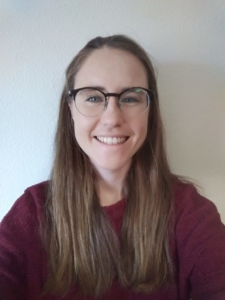
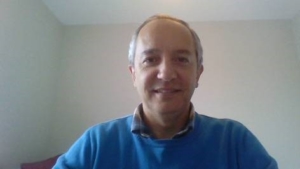
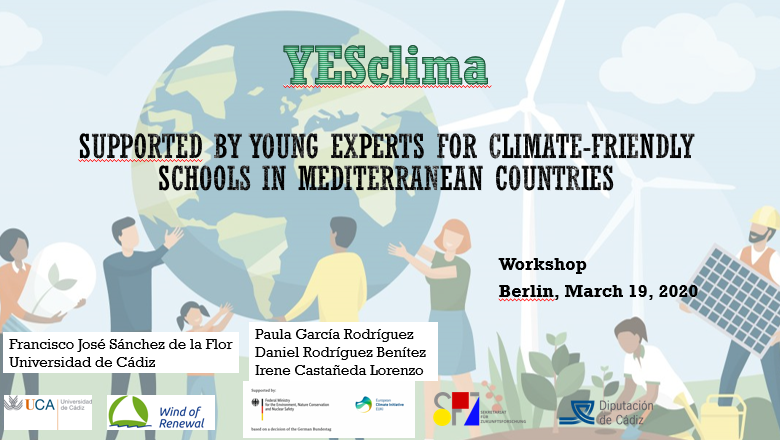

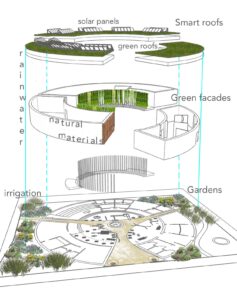 One of the main goal of this project is also to create a nearly Zero Energy Building. In order to do that we have implemented a number of systems and methods that can contribute to the energy audits of the building. The systems we propose are:
One of the main goal of this project is also to create a nearly Zero Energy Building. In order to do that we have implemented a number of systems and methods that can contribute to the energy audits of the building. The systems we propose are: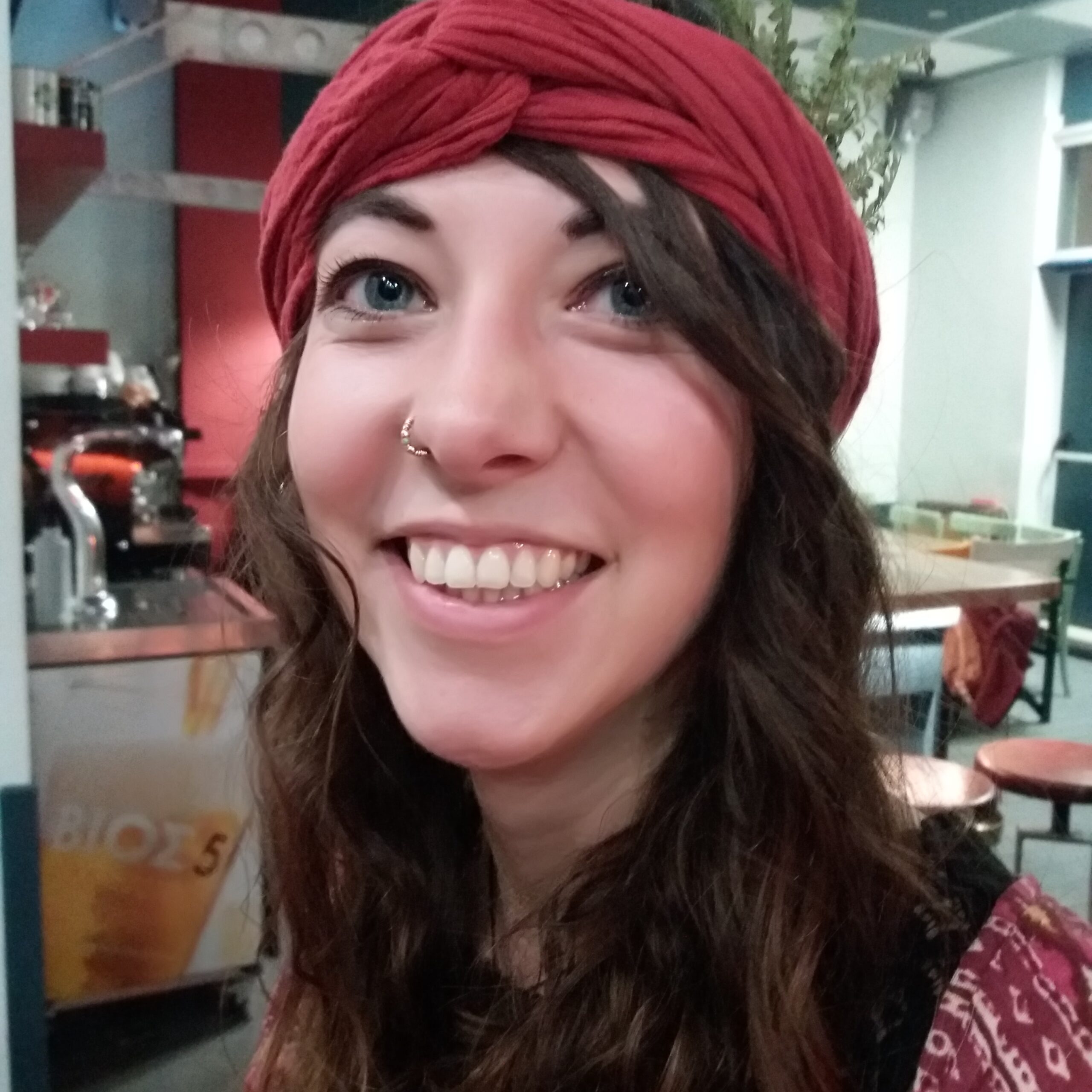
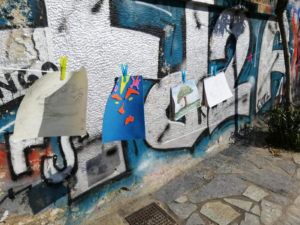 The hostel is located in the heart of Athens, not very central but still just a few minutes by walking from all the sights and close to big parks and picturesque hills, offering a view all over the city. I enjoyed staying in this neighbourhood especially, because people from any background meet there: homeless, travelers, refugees, squad people, hippies, locals, students, etc. and everyone is treating each other in a kind way. People here have a strong left-wing political attitude, which is expressed in beautiful graffities, the street life is vibrant, you can have interesting conversations on every corner surrounded by alternative, cozy and cheap restaurants, cafés and bars.
The hostel is located in the heart of Athens, not very central but still just a few minutes by walking from all the sights and close to big parks and picturesque hills, offering a view all over the city. I enjoyed staying in this neighbourhood especially, because people from any background meet there: homeless, travelers, refugees, squad people, hippies, locals, students, etc. and everyone is treating each other in a kind way. People here have a strong left-wing political attitude, which is expressed in beautiful graffities, the street life is vibrant, you can have interesting conversations on every corner surrounded by alternative, cozy and cheap restaurants, cafés and bars. 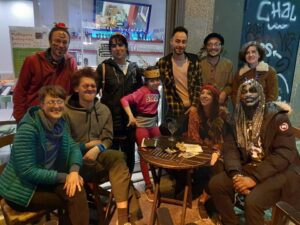 The Welcommon hostel offers their space and commitment in order to support everyone in developing and pursuing their own needs, ideas, skills and resources in an empowering way. By following those principles, we firstly exchanged language skills, especially in German, English and French, but also we volunteers learned some Farsi, Arabic or Turkish. During my time in Athens, the project only started and began to grow very quickly. Each week more people were arriving and after a few weeks it was possible to establish a regular schedule, with language exchange during the day and a variety of offers in the evenings like, Karaoke, cultural nights, movie nights, theater and kickboxing.
The Welcommon hostel offers their space and commitment in order to support everyone in developing and pursuing their own needs, ideas, skills and resources in an empowering way. By following those principles, we firstly exchanged language skills, especially in German, English and French, but also we volunteers learned some Farsi, Arabic or Turkish. During my time in Athens, the project only started and began to grow very quickly. Each week more people were arriving and after a few weeks it was possible to establish a regular schedule, with language exchange during the day and a variety of offers in the evenings like, Karaoke, cultural nights, movie nights, theater and kickboxing. 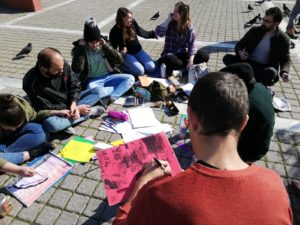 offered arts and crafts lessons for families and their children by emphasizing on individual creativity, environment empowerment and self awareness.
offered arts and crafts lessons for families and their children by emphasizing on individual creativity, environment empowerment and self awareness. 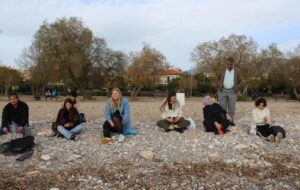 The refugee situation
The refugee situation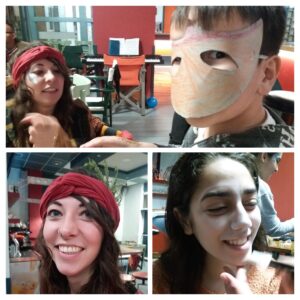 Since I had starting volunteering, I totally experienced the Welcommon days vision, which is to bring people together from all over the world, to enable them to communicate, by contributing with own ideas and experience with the highlight of making bridges between communities, social groups, newcomers and local people.
Since I had starting volunteering, I totally experienced the Welcommon days vision, which is to bring people together from all over the world, to enable them to communicate, by contributing with own ideas and experience with the highlight of making bridges between communities, social groups, newcomers and local people.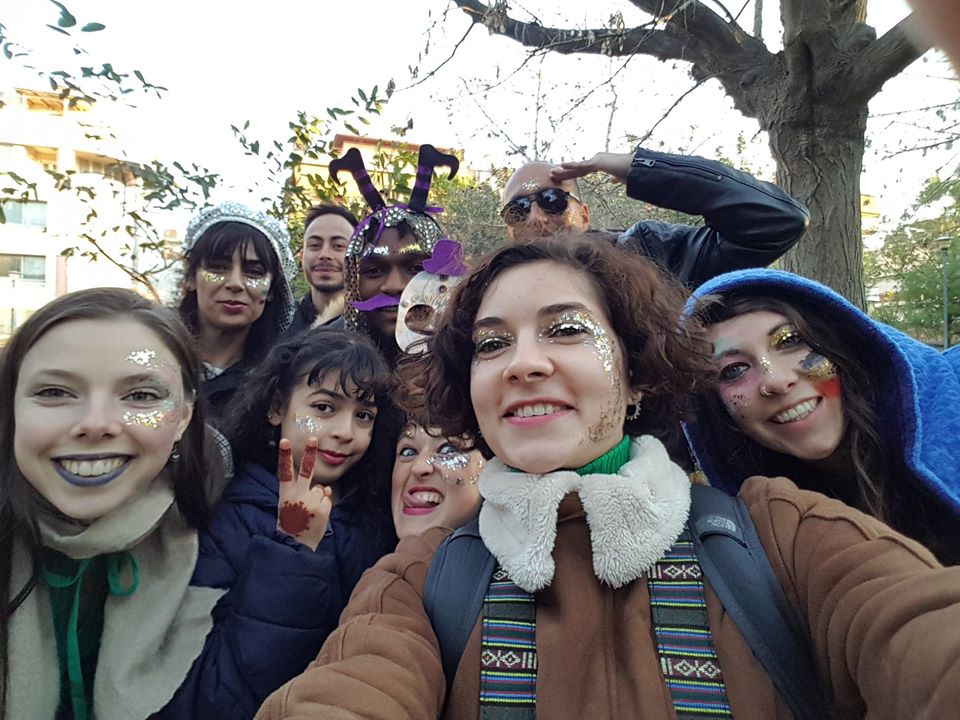
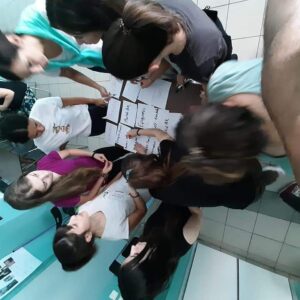 A precise schedule was developed by the previous volunteers at the beginning of this year. The main activities that we offered are the language skills exchange in English, French and German. On the other hand, we also learned some languages as Turkish, Arabic or Farsi thanks to the refugees. That’s why, we called it “skills exchange”: it is a bilateral way to share and learn about language, culture and many other topics important for people. This is really empowering for all of us. The Welcommon hostel offers their space to support everyone in developing and pursuing their own needs, ideas, skills and resources.
A precise schedule was developed by the previous volunteers at the beginning of this year. The main activities that we offered are the language skills exchange in English, French and German. On the other hand, we also learned some languages as Turkish, Arabic or Farsi thanks to the refugees. That’s why, we called it “skills exchange”: it is a bilateral way to share and learn about language, culture and many other topics important for people. This is really empowering for all of us. The Welcommon hostel offers their space to support everyone in developing and pursuing their own needs, ideas, skills and resources. 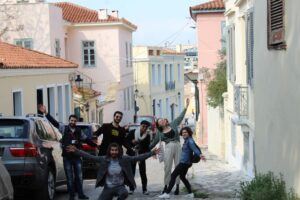 On Sundays, we planned free outside activities like a carnival Party, a photography tour in the city, a walk and a picnic in the National Gardens, visiting the Panathinaikon/Olympic Stadium, visiting a sea turtle rescue center and cleaning up the beach near Glyfada. Everyone is free to join and we all became friends easily.
On Sundays, we planned free outside activities like a carnival Party, a photography tour in the city, a walk and a picnic in the National Gardens, visiting the Panathinaikon/Olympic Stadium, visiting a sea turtle rescue center and cleaning up the beach near Glyfada. Everyone is free to join and we all became friends easily.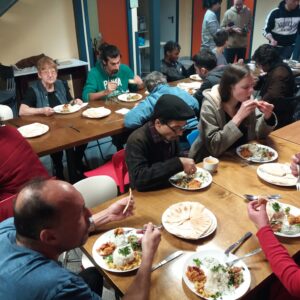
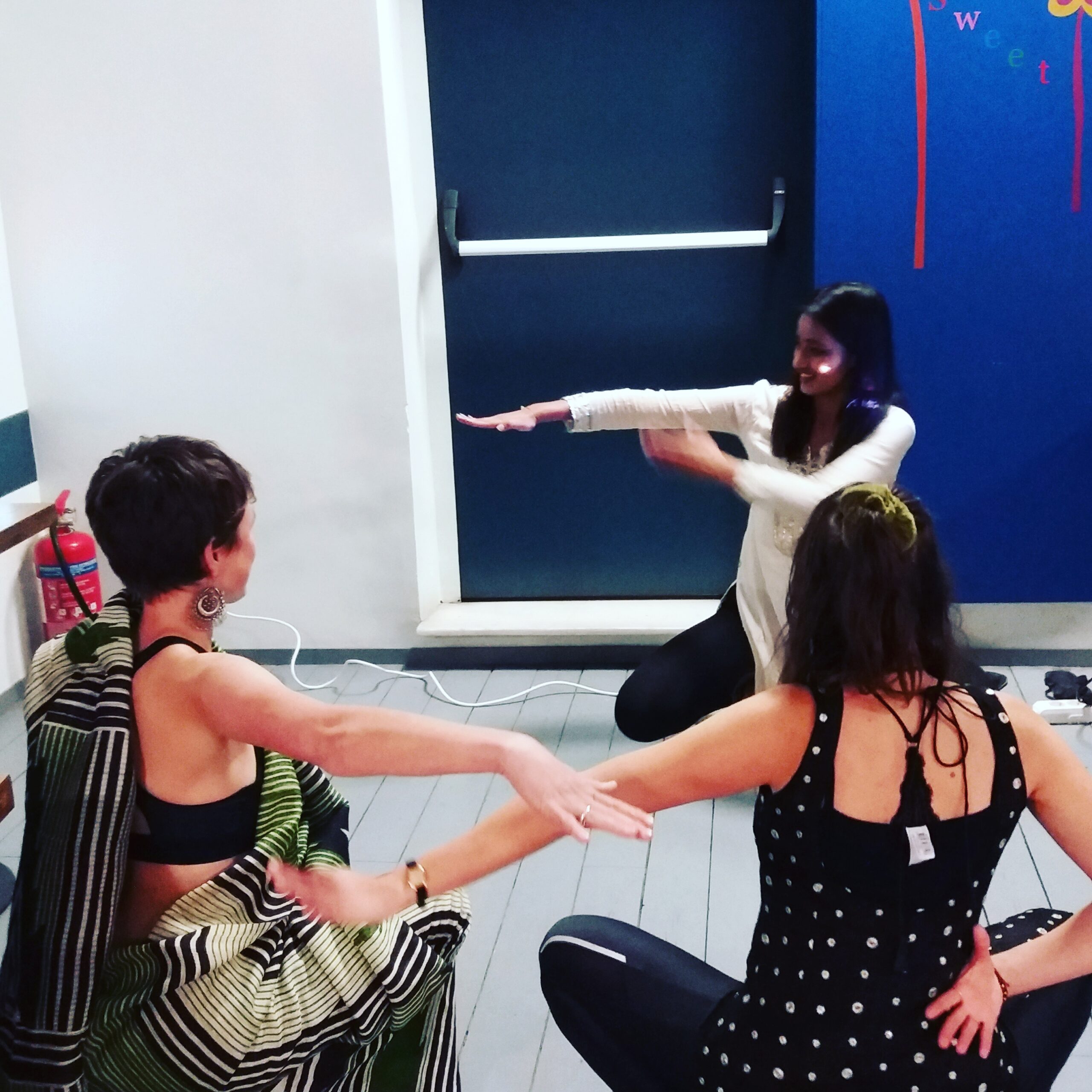
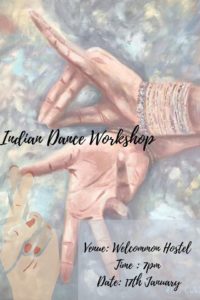
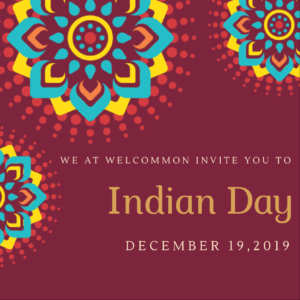
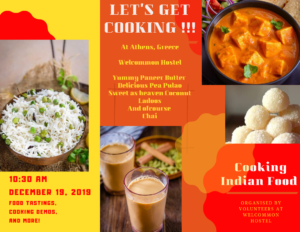
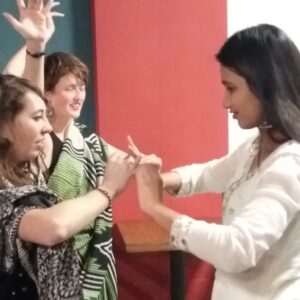
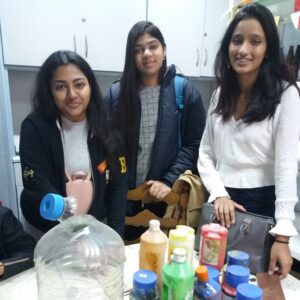
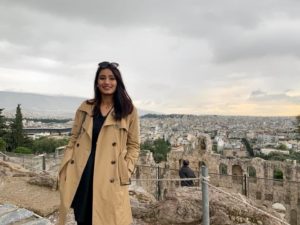 Apart from teaching, I am very interested in journalism, editing and content creation, and this volunteering experience will help her know a lot about communities better.
Apart from teaching, I am very interested in journalism, editing and content creation, and this volunteering experience will help her know a lot about communities better.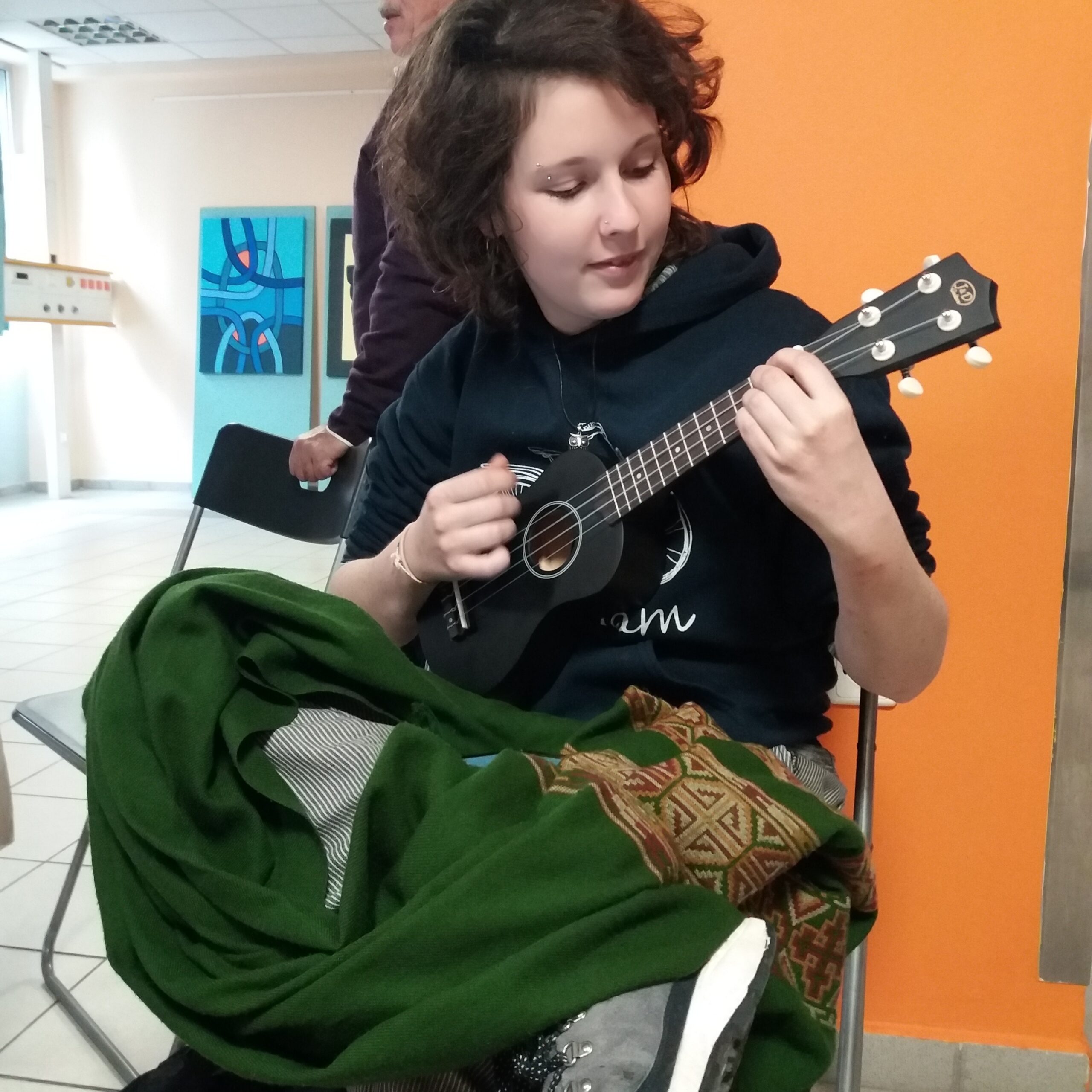
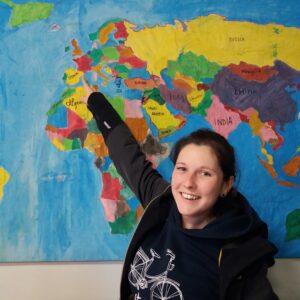

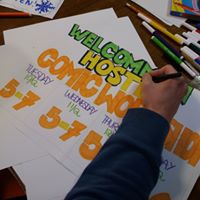
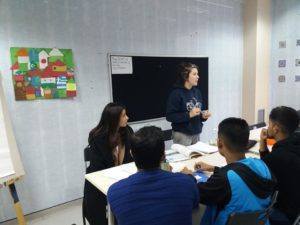 So, from the observation that creating workshops was not enough because the new comers were not already used to coming to Welcommon Hostel for such activities, I had to readjust the tasks to be done. In the following weeks, I therefore concentrated on making the communication as much as possible for NGOs established around the Exarchia district thanks to contacts that had given me by Ida, one of the receptionists of the hotel. I also changed the formula, instead of offering activities over an entire week, I preferred to offer several short activities taking place once a week. This is how I started to work on the installation of a film club, a karaoke, and a “Sunday activity”.
So, from the observation that creating workshops was not enough because the new comers were not already used to coming to Welcommon Hostel for such activities, I had to readjust the tasks to be done. In the following weeks, I therefore concentrated on making the communication as much as possible for NGOs established around the Exarchia district thanks to contacts that had given me by Ida, one of the receptionists of the hotel. I also changed the formula, instead of offering activities over an entire week, I preferred to offer several short activities taking place once a week. This is how I started to work on the installation of a film club, a karaoke, and a “Sunday activity”.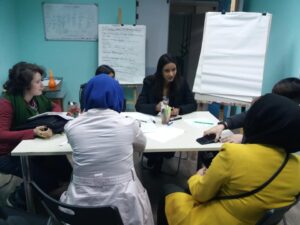
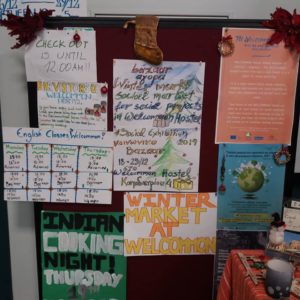 Fortunately in early January three new volunteers arrived: Ben, Roseanna and Franziska! One of the Indian volunteers Noyonika also stayed. With this small team, we all got along very well to continue the activities at the Welcommon Hostel. This very enthusiastic new team dynamic allowed the activities to work little by little! Thanks to the support that we gave to each other, communication started to gain momentum and we were able to divide up the missions to be carried out: create posters announcing events, go and stick them in different places, communicate on Facebook, better distribute the students of the beginners and advanced English lessons, animate the events and look for other associations in the area to create partnerships.
Fortunately in early January three new volunteers arrived: Ben, Roseanna and Franziska! One of the Indian volunteers Noyonika also stayed. With this small team, we all got along very well to continue the activities at the Welcommon Hostel. This very enthusiastic new team dynamic allowed the activities to work little by little! Thanks to the support that we gave to each other, communication started to gain momentum and we were able to divide up the missions to be carried out: create posters announcing events, go and stick them in different places, communicate on Facebook, better distribute the students of the beginners and advanced English lessons, animate the events and look for other associations in the area to create partnerships.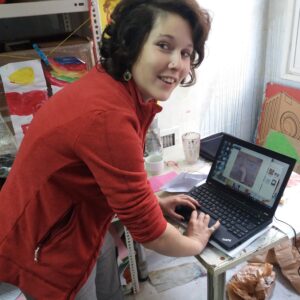
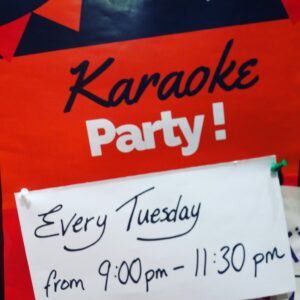 We also allowed other teenagers to organize a music evening at the Welcommon Hostel bar thanks to a DJ they knew. So, little by little, all the activities started to attract more and more people. But it was necessary to constantly support the communication with the students of the English course after having noticed that nobody came to the events when we did not insist every day, even if the week before a lot of people had come.
We also allowed other teenagers to organize a music evening at the Welcommon Hostel bar thanks to a DJ they knew. So, little by little, all the activities started to attract more and more people. But it was necessary to constantly support the communication with the students of the English course after having noticed that nobody came to the events when we did not insist every day, even if the week before a lot of people had come.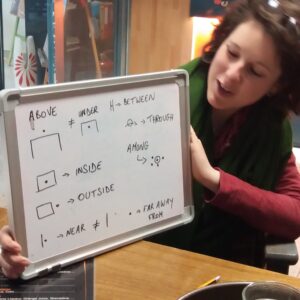
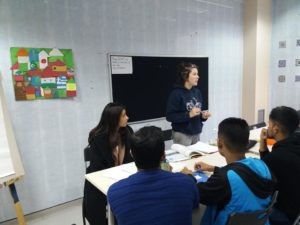
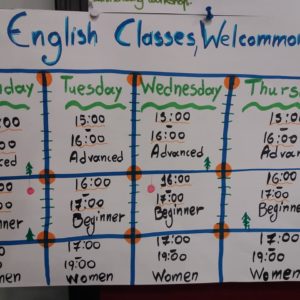
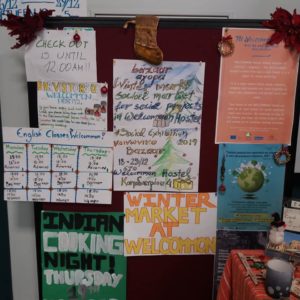

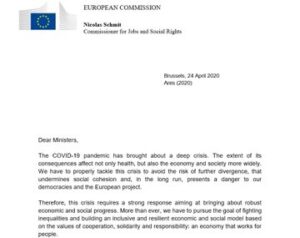
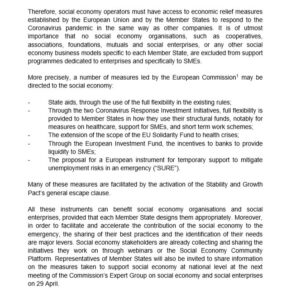
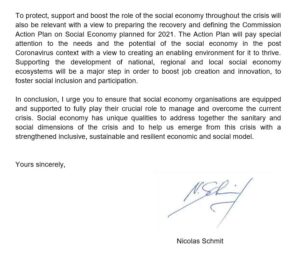
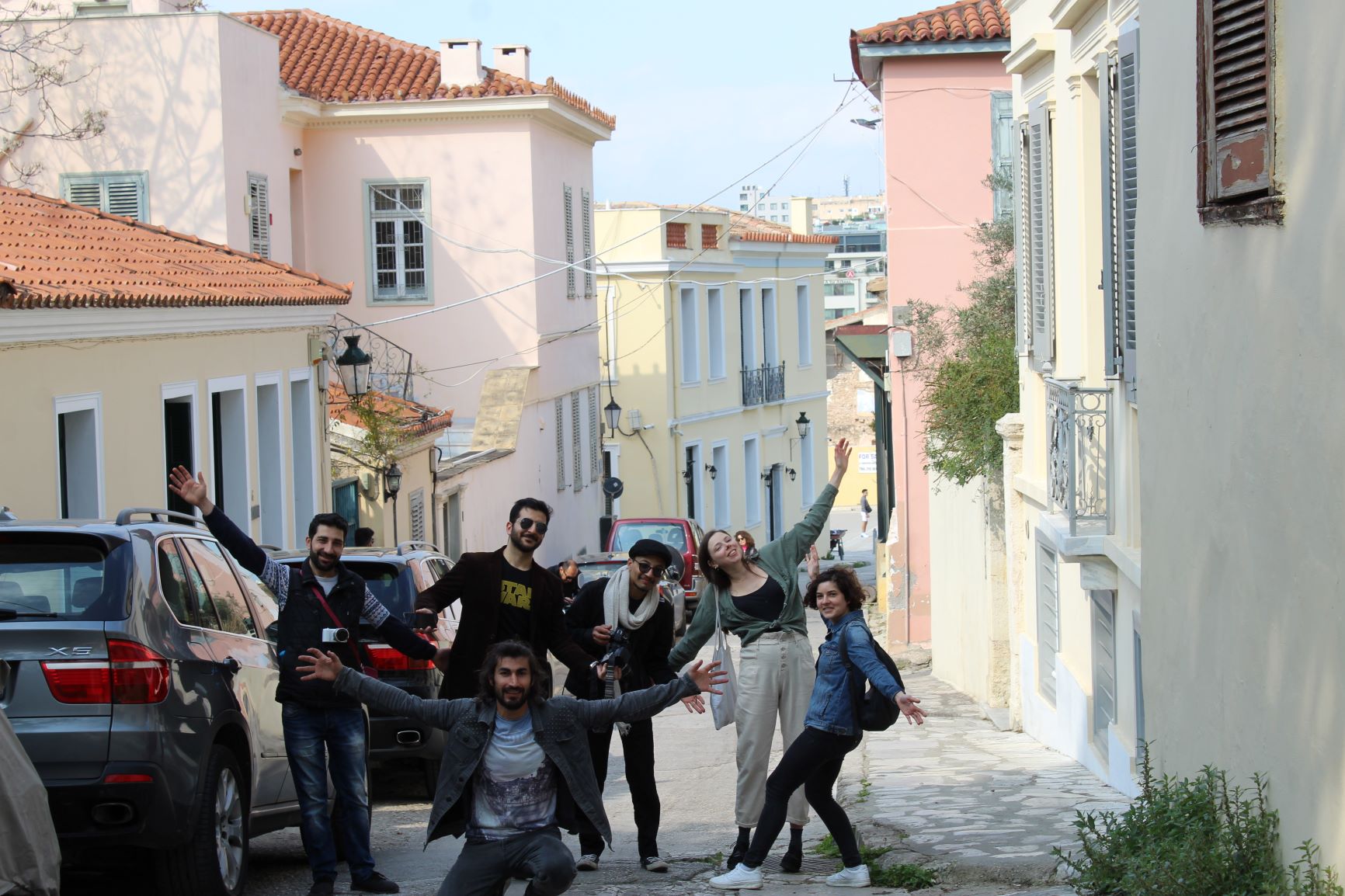
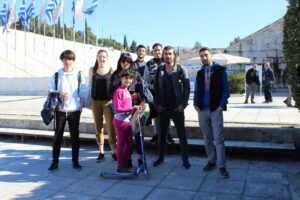
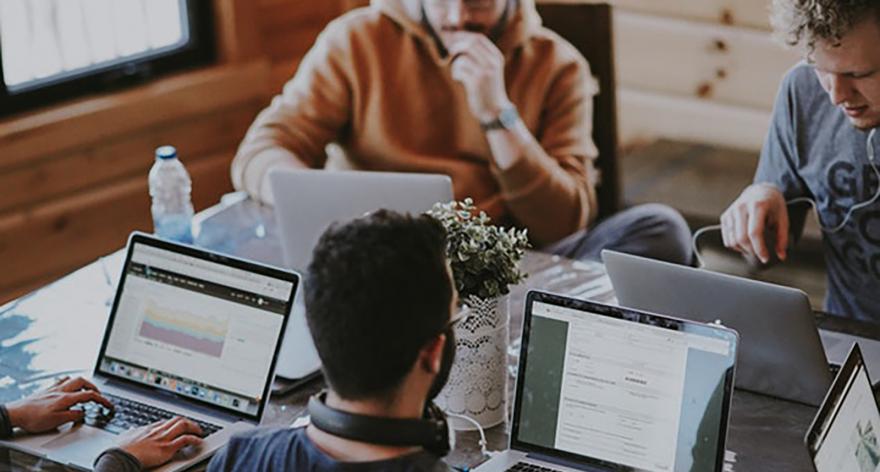
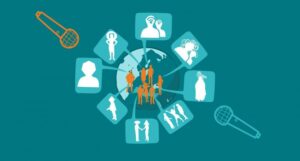
Recent Comments